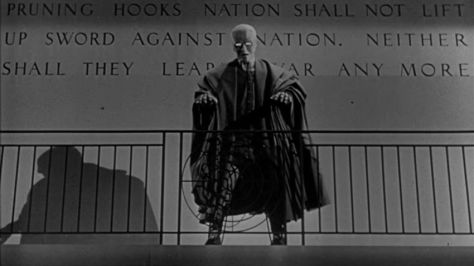
But if I’m going to be writing about the history of Godzilla, I should go back to where it really started.
In the development of the monster movie as we know it, The Beast From 20,000 Fathoms was the second impact, following previous Creature Classic subject The Thing From Another World, and the two of them set the tone for the rest of the 1950s. As was the case in writing about The Thing, I feel like it’s difficult to convey to readers how this type of movie, which most people probably assume has always been one of the primordial ideas of cinema, was simply not a thing before this—okay, it had had been a thing once before, almost twenty years prior, but there was nothing in between. For myriad reasons inside and outside of the film itself, King Kong (which had been re-released the year before this and saw a surprising amount of success) casts a long shadow over this film, possibly even more than all the subsequent movies about giant monsters stomping through a city, and while both share a dedication to realistic-as-possible depictions of prehistoric animals (even if they are fictionalized ones) and showcasing excessive property damage in New York City, Beast 20K (as I like to call it) offers a significant and timely innovation: attributing the appearance of the monster to atomic bomb testing. With this single narrative detail, one of the primary fascinations and terrors of the monster movie was unleashed upon thousands of theatre screens—it is not the only thing from this movie that subsequent ones would utilized, but it is among the most significant, providing a recurring theme for decades of movies about the perils of the post-war age of scientific advancement. With that in mind, it’s even more interesting to look at how this story’s use of that concept feels so removed from its imitators.

